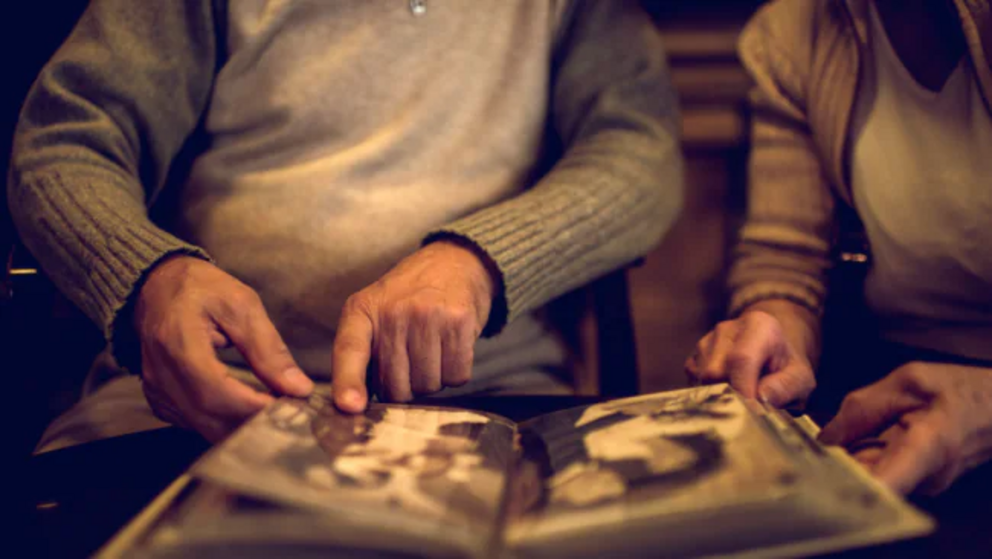A neuroscientist shares five ways to better protect your memory
Do you need to take a walk down memory lane? How much do you remember?
Care for your brain, people!
Just like you would with the rest of your body, it's so important to look after your brain. It is the memory hub and if it's in good health, it will protect them.
Whether it is the lessons we learn at school, time spent with family and friends, or even a beloved pet's birthday party, there are numerous memories we create each and every day.
A healthy brain ensures we have the hardware to store and retrieve our most precious memories – the moments and stories that define who we are.
Becoming disconnected from our memories can have a strong impact on our mind and sense of self. This can occur by becoming distant with a friend or losing items such as old photographs, which help anchor us to our memories. Such a detachment can result in a feeling of grief and a loss of sense of self.
Caring for your brain can help combat this, which can be as simple as making changes in your daily routine. Whether it’s doing small things like making more time for sleep, eating more vegetables, doing household chores or storing memories in a digital database to relieve your brain of processing, here are five tips to lead to a healthier brain function and to safeguard your most precious memories:
Get enough sleep
 Get less than 6 hours sleep a night? You might be at a higher risk of dementia.
Get less than 6 hours sleep a night? You might be at a higher risk of dementia.
While this sounds like an easy thing to do, shift work, stress and trying to tick off all the items on your daily to-do list, make it difficult for us to wind down and get sufficient sleep.
Sleep is essential for processing and consolidating new information and for the formation of long-term memories. Being constantly sleep-deprived or not getting to bed at the same time every evening, can result in poor focus and attention, making it difficult to retrieve newly learned information.
Getting regular sleep when it’s dark, and waking when the sun rises will result in more efficient memory consolidation and ensure our brains remain resilient to ageing and memory loss later in life.
Prioritise downtime
 You need some down time!
You need some down time!
Just like sleep, it’s important to ensure we’re having enough regular leisure and relaxation time. Finding your place or moment of calm amidst noise and busying is essential to buffer the impacts of the inevitable stress of life!
Experiencing stress, whether it be excessive amounts, short and frequent bursts or minor events, can leave you feeling unable to cope, can impair long-term memory and make it hard to regulate mood.
Schedule and stick to purposeful time throughout the week to have some quiet moments, doing something that alleviates stress or an activity you enjoy. This can be meditating, having a cup of tea, watching a movie, or walking with friends in nature.
Reflect on past memories regularly
 Reflect on your memories often.
Reflect on your memories often.
Our sense of well-being is tied up in memory. The ability to summon personally experienced past events is known as autobiographical memory recall and is how we weave our personal stories. Autobiographical memories that tell the story of our lives are always undergoing revision precisely because our sense of self is constantly changing too.
We can nurture memories, by flicking through old photo albums or watching home videos that are stored on a digital storage platform, and even reminiscing with family and friends.
Digitally safeguard your irreplaceable items
 It's a great idea to have your photos safeguarded digitally.
It's a great idea to have your photos safeguarded digitally.
When it comes to memories that we’ve already made, we typically anchor these to tangible items such as old photos, letters or trinkets, for example. These items are the embodiment of our memories and sense of self, they transport our memory back to the time and place of that item.
If we lose these items, a sense of grief can often be felt. Recent research from Allianz Australia revealed 95 per cent of Aussies consider sentimental items filled with a lifetime of memories to be irreplaceable and that losing these items has had an impact on their mental health (24 per cent), made them feel disconnected from their heritage (24 per cent) or left them with a sense of worry they would forget their family (22 per cent).
As a physical or digital representation can anchor us back into a moment in time, and while we can rely on our brain health and memory function for some of our memories, it is important to have options to safeguard the memories that are most precious to us. Platforms like Allianz Memory Safe allow Aussies to catalogue their memories online and ensure they are safeguarded for generations to come.
Care for your body, care for your brain
 Working out if good for your brain health.
Working out if good for your brain health.
The same activities that support your physical health also support your brain health. Ensuring that you are sleeping and eating well, exercising, connecting with other people, and alleviating stress are key to creating the building blocks for a healthy brain.
Look to incorporate activities you enjoy and are passionate about, or catch up with an old friend that you haven’t connected with for a while. Slowly incorporating all of these tips will help it become second nature.
With a healthy brain, you are working towards keeping your precious autobiographical memories safe for the future.

